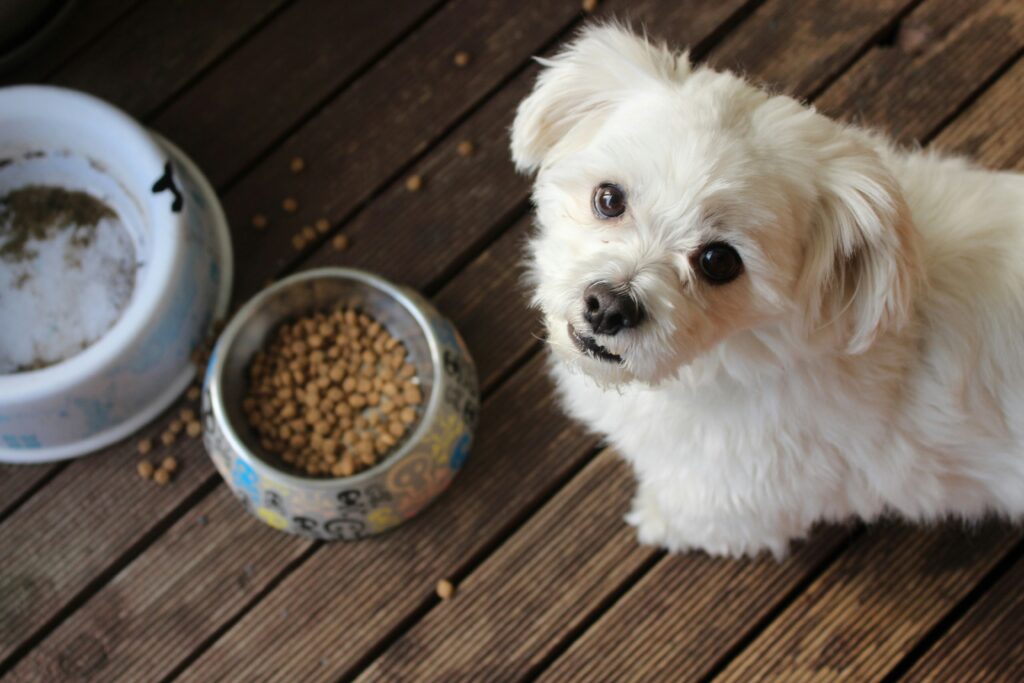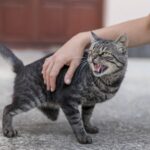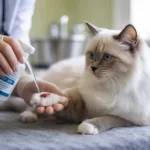
Contents
As pet owners, we all want to keep our beloved companions safe and healthy. Yet many of us accidentally put our pets in danger without even knowing it. Everyday foods that are perfectly fine for us to eat can be harmful or even deadly to our dogs and cats. Simple things like a piece of chocolate, some onion, or just one grape can make your pet very sick, turning a normal day into a scary trip to the vet.
In this blog, we’ll highlight some of the most common toxic foods for pets, what to look out for, and how to protect your pet from accidental poisoning. We’ll also explain when to seek emergency care for pets in case your pet ingests something dangerous.
Top Toxic Foods for Pets
Here are some of the most common dangerous foods for pets that pet owners should avoid giving to their animals:
- Chocolate
Chocolate is one of the most well-known toxins for pets, especially dogs. The theobromine in chocolate can cause symptoms ranging from vomiting and diarrhea to seizures and even death. Dark chocolate is the most toxic, followed by milk chocolate and cocoa powder. If your pet ingests chocolate, it’s crucial to seek emergency care for pets immediately, as even small amounts can be harmful. - Grapes and Raisins
Grapes and raisins, while healthy for humans, are highly toxic to dogs and can lead to kidney failure. The exact substance in grapes and raisins that causes the toxic reaction is still unknown, but it’s best to avoid them entirely. Symptoms of poisoning include vomiting, diarrhea, lethargy, and loss of appetite. If your pet consumes grapes or raisins, contact your vet immediately for advice. - Onions and Garlic
Both onions and garlic, whether raw, cooked, or powdered, contain compounds called thiosulfates, which can cause hemolytic anemia in pets. This condition leads to the destruction of red blood cells, causing symptoms such as weakness, lethargy, and pale gums. Cats are particularly sensitive to these foods, so it’s important to keep them out of reach at all times. - Xylitol
Xylitol is a sugar substitute commonly found in sugar-free gum, candies, baked goods, and even some peanut butter brands. While it’s safe for humans, it can be fatal to pets, especially dogs. Xylitol causes a rapid drop in blood sugar levels, which can lead to seizures, liver failure, and even death. If your dog consumes something with xylitol, seek emergency pet care immediately. - Avocados
Avocados contain a substance called persin, which can be toxic to dogs, cats, and birds. While it’s generally safe in small amounts for humans, consuming larger quantities or eating parts of the avocado like the pit or skin can cause vomiting and diarrhea in pets. It’s best to avoid feeding your pets avocado altogether. - Alcohol
Alcohol is highly toxic to pets, and even small amounts can cause serious harm. Symptoms of alcohol poisoning include vomiting, diarrhea, difficulty breathing, and seizures. In severe cases, alcohol poisoning can lead to coma or death. Keep alcoholic beverages out of reach of pets, especially during holiday gatherings or parties. - Macadamia Nuts
Macadamia nuts are toxic to dogs and can cause symptoms such as vomiting, tremors, hyperthermia (increased body temperature), and weakness. While the exact cause of the toxicity is unknown, these nuts should be kept away from your pets. Even small amounts can cause a severe reaction. - Caffeine
Found in coffee, tea, soda, energy drinks, and some medications, caffeine is highly toxic to pets. The stimulant can cause symptoms such as restlessness, rapid breathing, heart palpitations, and seizures. Keep caffeinated beverages and products away from pets, especially dogs. - Dairy Products
While milk and cheese are not technically toxic to pets, many animals, particularly dogs and cats, are lactose intolerant. This means they cannot properly digest lactose, which can lead to gastrointestinal upset, including diarrhea and vomiting. While a small amount may not cause serious harm, it’s best to avoid dairy products to prevent discomfort. - Fatty Foods
Foods that are high in fat, such as fatty cuts of meat, bacon, or fried foods, can cause pancreatitis in pets. This painful condition causes inflammation of the pancreas and can lead to vomiting, diarrhea, and lethargy. In severe cases, it can be life-threatening. Be cautious about feeding your pet table scraps, especially those that are rich in fat.
What to Do If Your Pet Eats Something Toxic
If your pet eats something toxic, the best thing you can do is act quickly. Here are the steps to follow:
- Stay Calm
It’s important to stay calm so you can think clearly and take action quickly. Panicking can make the situation more stressful for both you and your pet. - Contact Your Vet or Emergency Pet Clinic
Call your regular vet or the nearest emergency pet clinic for advice. Let them know what your pet ingested, how much, and when it happened. This information will help them determine the best course of action and whether your pet needs to be seen immediately. - Follow Your Vet’s Instructions
Your vet may recommend inducing vomiting or bringing your pet in for an examination. Do not attempt to make your pet vomit without consulting a vet first, especially if your pet has ingested something corrosive, like bleach or a toxic plant. Always follow your vet’s advice to ensure the best outcome. - Bring the Packaging or Sample of the Toxin
If possible, bring the packaging of the food or the plant your pet ingested with you to the vet. This will help them identify the toxin and determine the most effective treatment. - Monitor Your Pet’s Symptoms
Even if you’re not sure if your pet has ingested something toxic, keep a close eye on them for any changes in behavior or physical symptoms. If you notice anything unusual, contact your vet immediately.
Preventing Accidental Poisoning in Pets
Preventing poisoning is much easier than treating it. Here are some tips to keep your pet safe:
- Keep harmful foods out of reach: Store food and snacks in cabinets or areas that are inaccessible to pets.
- Educate your family: Make sure everyone in your household knows which foods are dangerous to pets and how to avoid giving them human food.
- Be cautious during holidays: Holiday foods like chocolate, raisins, and alcohol are common dangers during special occasions. Keep these items out of reach and ensure guests know not to feed your pet.
- Use pet-safe products: Check the ingredients in foods, treats, and even household items like peanut butter, making sure they are safe for pets.
Conclusion
Accidental pet poisoning from common household foods is a serious risk that every pet owner should be aware of. Understanding which foods are toxic, recognizing the symptoms of poisoning, and knowing what to do in an emergency can save your pet’s life. Always remember to keep potentially harmful foods away from your pets and be cautious when feeding them human food. In case of poisoning, quick action and emergency pet care are critical to minimizing harm.
If your pet has ingested something toxic, don’t wait—contact North MS Pet Emergency immediately for urgent care. Our team is here to help with emergency pet care and ensure your pet stays safe and healthy.Contact Us Now for immediate assistance, or visit us for emergency care for pets after hours.




